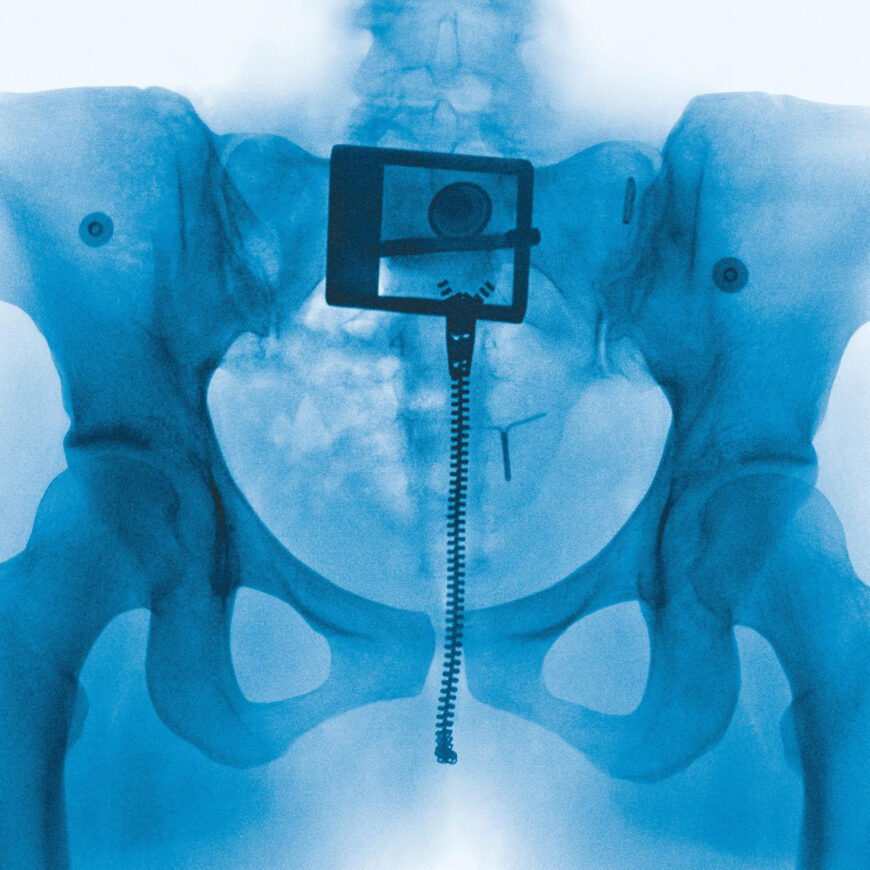A year after we entered global isolation due to COVID, Ella Yelich-O’Connor resurfaced to tell us she’d stopped taking calls. On 2021’s polarizing Solar Power, she threw her cellular device in the ocean, began healing under the sun’s UV rays, and started reckoning with herself as the one of the world’s most beloved pop stars after two critically acclaimed albums. “Teen millionaire having nightmares from the camera flash/ Now I’m alone on a windswept island,” she sang on “The Path,” over dreamy guitar plucks and flute flutters. Though she might’ve looked like “a prettier Jesus” with endless disciples, (the) Lorde was questioning the mythology built around her: “If you’re looking for a savior, well that’s not me.”
In a recent interview on Therapuss With Jake Shane, the New Zealander explained that, after 2017’s Melodrama, she was overwhelmed with the sheer scale of “Lorde” — how had her after-school passion become a world-touring phenomenon? After finishing touring in 2018, she retreated to her native country, opting for a life off the grid and the ‘gram. That isolation resulted in an album that felt too light and airy to ground us during unprecedented chronic global unrest.
Solar Power felt like a collective, if poetic, fever dream. When she sweetly suggested to “forget all the tears that you’ve cried/ It’s over” on the title track, it felt jarringly out of place mid-pandemic. For such a sunny album, it was, in retrospect, baked with many layers of grief and self-doubt. Maybe that’s why it was initially so uncomfortable to listen to. Here was one of our most revered pop auteurs, known for cathartic, pristinely written anthems, now wading through the high tide of hedonistic and existential dissonance. The world’s on fire, but why can’t it feel good to get stoned with a fresh set of nails and head to the beach. Was this supposed to be satire or escapism?
By the end of the SP era, O’Connor realized her hippie-dippie pivot wasn’t the best fit. In an alternate universe, she mused to Shane, maybe there’s a Lorde that stayed in New Zealand and thrived on vibing out at an organic farm. “You have no choice but to be who you’re supposed to be,” she admitted. “I am this person who’s meant to make these bangers that fuck us all up, that rip across a festival ground. I’m supposed to do that to our bodies.”
When the time came to begin rolling out Virgin — her fourth album, out today — return single “What Was That” sounded like the older sister of various Melodrama tracks, picking up where she left off in the era that made her want to hide away. The song proposed other issues: Was Lorde reclaiming her past, or was Solar Power just a surreal intermission? There was a brief moment where this return to sound might have signaled a regression — is she gonna reheat her own nachos?
Far from it. Virgin doesn’t cash in on nostalgia, and it doesn’t treat Solar Power like an unloved detour. Instead, she returns to New York City to find the magic of everyday life. She’s reunited with her smashed iPhone, which is now liquid crystal she holds while walking around Washington Square Park. An ionized metal water bottle is a nostalgic wand, and T-Rex Tape is a portal to her masculinity. Yes, she’s getting her aura photographed and making wishes on pierced ears on “Hammer.” In the context of Virgin, acts that might otherwise seem silly or childish are precious rituals that symbolize a surrender to forces we’ll never understand. “I might have been born again/ I’m ready to feel like I don’t have the answers/ There’s peace in the madness,” she sings. The track gives way to vocal flurries and agitated sprinkler percussion. She sounds more uninhibited than ever.
Much of Virgin deals with the straight-up absurdity of getting older. She wrestles with gender fluidity (“Some days I’m a woman/Some days I’m man”), unpacks the inheritance of familial trauma, struggles with the fallacy of adulthood, and navigates the messiness of a body that’s both wondrous and uncomfortable. “Mystique is dead,” she proclaims on “Broken Glass.” She’s fully present here — treating songwriting like it’s a superpower, not a rusted shield. “I become her again/ Visions of my teenage innocence,” she sings at one point. Throughout Virgin, O’Connor isn’t shedding her past — she’s integrating it.
The album is just as fluid sonically as it is thematically. The lyrical gray areas she explores don’t clash with the production, they breathe through it. In fact, her ad libs are most of these songs’ guiding constellations. She’s found a dynamic collaborator in co-producer Jim-E Stack (with additional production by Dev Hynes, Dan Nigro, Buddy Ross, and Sachi DiSerafino). Together, these songs simmer with a suspenseful layer of sweat.
Even though Virgin has a pattern of slow-starting bangers, it’s far from repetitive, with plenty of curveballs. “If She Could See Me Now” interpolates 2003 hit “Suga Suga” by Baby Bash. “Current Affairs” (the subject of some gossip this week) samples dancehall producer Dexta Dap’s “Morning Love” while also evoking Kate Bush. (Both were co-written with Fabiana Palladino who released her brilliant self-titled debut last year.) “Clearblue” is the sonic child of Imogen Heap and Bon Iver (who makes an appearance on closer “David,” fresh off his own full-length Jim-E Stack collaboration). “Broken Glass” is a new wave banger about body issues.
Melodrama was artfully reckless, but Virgin is breathtakingly ruthless. Lorde doesn’t hold back from writing about sex and intimacy in any way. She captures the uncomfortable, the sacred, and the cliche layers of physical interaction and emotional chemistry. She’s grown well past the innocent proclamations of “Perfect Places” (“Let’s kiss and then take off our clothes/ It’s just another graceless night”). The spaces she inhabits on Virgin are more private, and the stakes feel higher and rawer. Physical connection becomes a way to feel more alive on “Clearblue” and even spiritually adjacent on “Current Affairs” (“He spit in my mouth like he’s saying a prayer”). That same song contemplates the sex tape of Pamela Anderson and Tommy Lee — how an initially pure, intoxicating connection becomes twisted into a source of public shame and spectacle. This next-level vulnerability Lorde explores on Virgin feels like a rebellion against the shame that so often imprisons us.
Virgin refuses to step back from the edge. Instead, Lorde sings about being on the edge as if it’s the pinnacle of being alive. These tracks display an understanding that the distances between things — man and woman, a grown-up and an ageless self, mystique and magic, real-life intimacy and sex tapes — don’t necessarily help us understand or relate to them any better. It’s in the space between these definitions that we can find ourselves.
“I’m always trying to stay connected to my teen self,” she shared. “There’s some real magic in the teen version of you. I was really trying to get back to this place where you’re quite awkward and it all spills out in the way you didn’t want to.” Throughout the album, she holds space for discomfort and evolution, whether it’s the surreal tension of “Maybe you finally know who you want to be/ A grown woman in a baby tee” or the emotional violence of “I want to punch the mirror to make her see that this won’t last.” Lorde reaches toward her teen self — not to relive it, but to retrieve its chaotic honesty and break open another part of herself. Virgin captures that magic: awkward, exposed, and urgently human.








